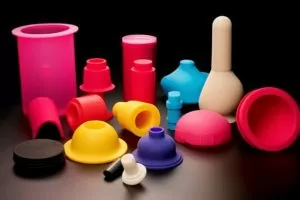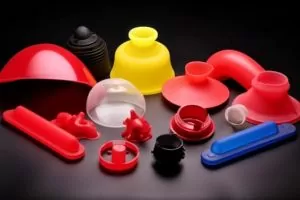Introduction
Silicone rubber is a highly versatile material that has revolutionized numerous industries due to its unique properties and applications. From automotive and medical to electronics and construction, silicone rubber offers exceptional performance and durability. Understanding the different types of silicone rubber materials is crucial for harnessing its full potential in various applications. In this article, we will provide a brief overview of silicone rubber products and emphasize the importance of comprehending its diverse types. By exploring the characteristics and applications of different silicone rubber materials, you will gain valuable insights into selecting the most suitable option for your specific needs.
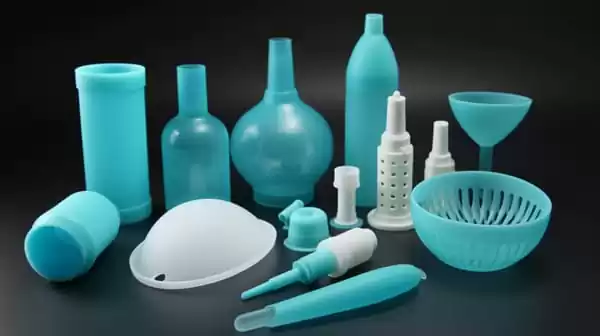
II. Different Types of Silicone Rubber Materials
A. Liquid Silicone Rubber (LSR)
Liquid Silicone Rubber (LSR) is a versatile type of silicone rubber that exhibits liquid form and can be injection molded. It possesses several defining characteristics:
- Excellent temperature resistance: LSR can withstand a wide range of temperatures, making it suitable for both high and low-temperature applications.
- Tear resistance: LSR has high tear strength, allowing it to withstand stretching and tearing forces.
- High thickness rubber properties: LSR can be applied in thick layers without compromising its performance.
LSR finds diverse applications across industries, including:
- Medical devices: LSR is extensively used in manufacturing medical devices such as implants, catheters, and silicone rubber band bracelets.
- Consumer products: It is utilized in the production of silicone rubber molds for various consumer products like kitchenware, baby products, and phone cases.
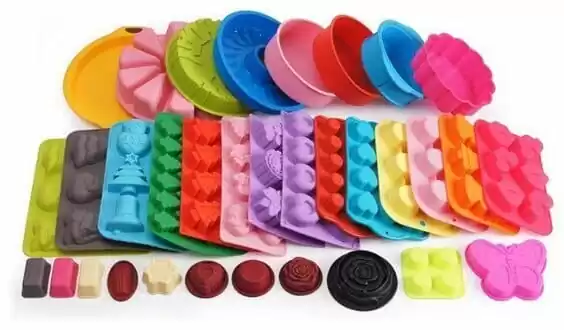
B. Room Temperature vulcanized (RTV) Silicone Rubber
Room Temperature Vulcanizing (RTV) Silicone Rubber is a highly versatile silicone rubber that cures at room temperature. It possesses the following characteristics:
- Good flexibility: RTV silicone rubber exhibits excellent flexibility, allowing it to adapt to different shapes and sizes.
- Chemical resistance: It offers resistance to moisture, chemicals, and weathering, ensuring long-term durability.
- Wide range of hardness: RTV silicone rubber is available in different hardness levels, allowing for customization according to soft or medium hardness specific application requirements.
RTV silicone rubber finds various applications for organic rubber, including:
- Seals and gaskets: It is commonly used for creating airtight and watertight seals in automotive, construction, and manufacturing industries.
- Silicone rubber molds: RTV silicone rubber is extensively employed for creating molds used in industries such as prototyping, arts and crafts, and food production.
C. High-Temperature Vulcanizing (HTV) Silicone Rubber
High-Temperature Vulcanizing (HTV) Silicone Rubber is designed to withstand extreme heat conditions. It possesses the following characteristics:
- High-temperature resistance: HTV silicone rubber retains its physical and mechanical properties even at temperatures exceeding 200°C.
- Thermal stability: It maintains its performance and shape under prolonged exposure to high temperatures.
- Chemical stability: HTV silicone rubber exhibits resistance to chemicals, making it suitable for harsh environments.
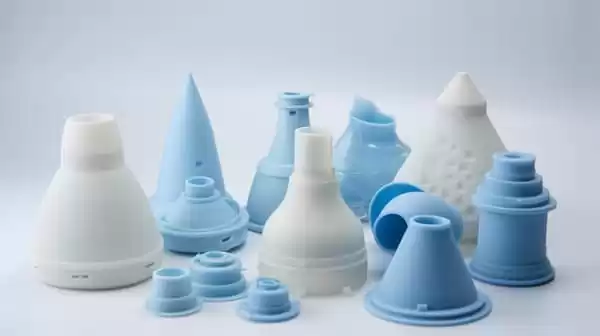
HTV silicone rubber is widely used in applications such silicone products such as:
- Automotive parts: It is utilized in the production of gaskets, seals, and connectors in engines and exhaust systems.
- Electrical insulation: HTV silicone rubber provides excellent electrical insulation properties, making it ideal for applications in high-voltage environments.
D. Solid Silicone Rubber
Solid silicone rubber is a highly versatile elastomer with a wide temperature range and excellent physical and mechanical properties. It possesses the following characteristics:
- Elasticity and tear resistance: Solid silicone rubber exhibits high elasticity and tear resistance, making it durable and long-lasting.
- Temperature resistance: It can withstand extreme temperatures, both high and low, without significant changes in its properties.
- Chemical resistance: Solid silicone rubber is resistant to chemicals and offers excellent resistance to aging and weathering.
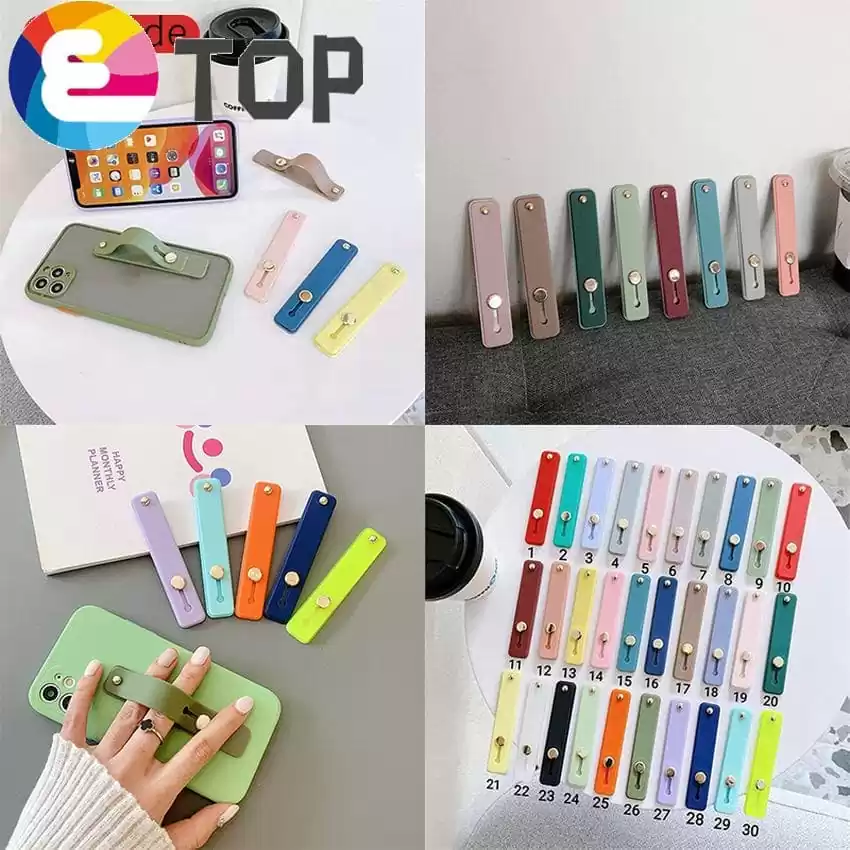
Solid silicone rubber finds diverse applications, including:
Medical applications: It is widely used in medical devices, implants, and prosthetics due to its biocompatibility and durability.
Dynamic sealing: Solid silicone rubber is utilized in applications where sealing against fluid or gas is required, such as in automotive, aerospace, and industrial equipment.
Understanding the characteristics and applications of these different types of silicone rubber materials allows for informed decision-making in selecting the most suitable option for specific needs. Each type aerospace silicone rubber offers unique properties and advantages, making silicone rubber a versatile and reliable choice across various industries.
III. Applications of Different Types of Silicone Rubber
A. Automotive Industry
Silicone rubber plays a crucial role in the automotive industry due to its unique properties and reliability. Some key points regarding its applications include:
- Importance of silicone rubber in automotive components: Silicone rubber is widely used in various automotive components due to its excellent temperature resistance, durability, and chemical stability.
- Specific applications and examples: Silicone rubber is utilized for seals, gaskets, O-rings, and hoses, ensuring reliable performance and preventing leaks in engines, transmissions, and cooling systems.
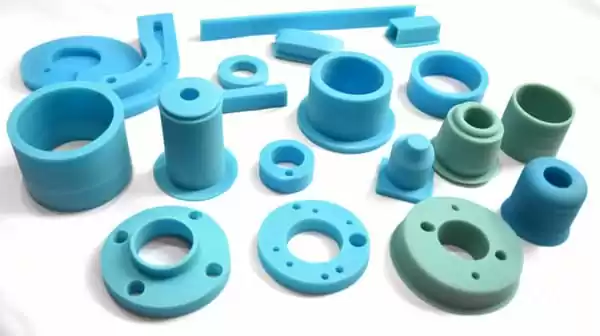
B. Medical Industry
Silicone rubber holds immense significance in the medical industry, primarily due to its biocompatibility and versatility. Consider the following aspects:
- Significance of silicone rubber in medical devices: Silicone rubber is extensively used in medical devices and equipment, offering excellent biocompatibility, sterilization resistance, and durability.
- Specific applications and examples: Medical implants, catheters, prosthetics, and surgical instruments often incorporate silicone rubber due to its ability to withstand medical environments and provide long-lasting performance.
C. Electronics Industry
The electronics industry benefits greatly from the unique properties of silicone rubber, particularly in electrical insulation and protection. Explore the following details:
- Role of silicone rubber in electrical insulation and components: Silicone rubber provides exceptional electrical insulation properties, thermal stability, and resistance to environmental factors, making it ideal for electrical applications.
- Specific applications and examples: Silicone rubber is used for keypads, seals, connectors, and insulating tapes in electronic devices, ensuring reliable performance, moisture resistance, and protection against electrical shocks.
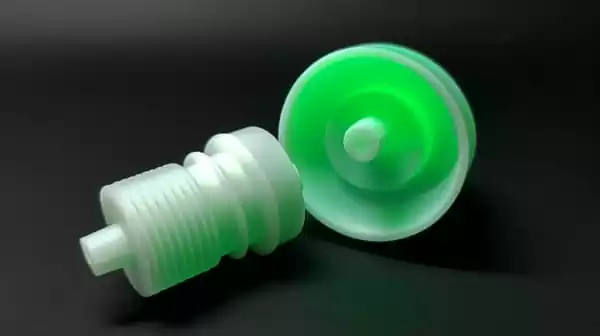
By understanding the applications of different types of silicone rubber in these industries, one can harness the versatility and reliability of this material for specific needs. Whether it’s in automotive components, medical devices, or electronics, silicone rubber continues to be a preferred choice due to its exceptional properties and performance characteristics.
IV. Advantages and Key Properties of Silicone Rubbers
Silicone rubber offers several advantages and key properties that make it a versatile material for various applications. Let’s explore some of its notable properties:
A. Temperature Resistance:
Silicone rubber exhibits remarkable temperature resistance, allowing it to perform effectively in both high and low-temperature environments. It can withstand extreme heat without losing its physical properties, making it suitable for applications where temperature fluctuations are common.
B. Chemical Resistance:
Silicone rubber demonstrates excellent resistance to a wide range of chemicals, including acids, bases, solvents, and oils. This chemical stability ensures the material’s durability and reliability in harsh environments, where exposure to different substances is prevalent.
C. Electrical Insulation:
Silicone rubber is an exceptional electrical insulator. It provides excellent dielectric properties, allowing it to resist the flow of electric current. This makes it an ideal choice for electrical insulation applications, preventing electrical leakage and ensuring safe operation in various electrical components.
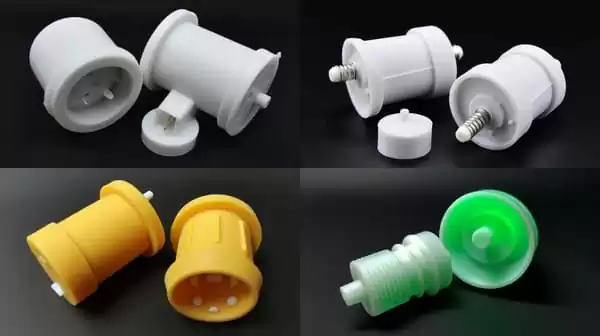
D. Elasticity and Tear Resistance:
With its inherent elasticity, silicone rubber can stretch and deform under stress, then return to its original shape once the stress is removed. This elasticity allows silicone rubber to accommodate movements, vibrations, and mechanical stresses without experiencing permanent deformation. Additionally, it exhibits high tear resistance, making it durable and long-lasting.
E. Weather Resistance:
Silicone rubber is highly resistant to weathering, including UV radiation, moisture, and extreme weather conditions. It maintains its physical properties and performance over prolonged exposure to outdoor environments, making it suitable for applications requiring weather resistance, such as outdoor seals, gaskets, and automotive components.
These advantages and key properties of silicone rubber, including temperature resistance, chemical resistance, electrical insulation, elasticity, tear resistance, and weather resistance, make it a preferred material across various industries. Whether it’s withstanding extreme temperatures, resisting chemicals, insulating electricity, or enduring outdoor conditions, silicone rubber delivers exceptional performance and reliability.

Conclusion
In conclusion, silicone rubber stands out as a versatile material with a wide range of applications across industries. Its unique properties, including temperature resistance, chemical resistance, electrical insulation, elasticity, tear resistance, and weather resistance, make it highly desirable for diverse needs. By understanding the different types of silicone rubber materials, such as liquid silicone rubber (LSR), room temperature vulcanizing (RTV) silicone rubber, high-temperature vulcanizing (HTV) silicone rubber, and solid silicone rubber, one can harness the full potential of this remarkable material.
From the automotive industry, where silicone rubber is crucial for seals, gaskets, and O-rings, to the medical industry, where it is used in implants, catheters, and surgical instruments, silicone rubber plays a significant role. In the electronics industry, silicone rubber’s electrical insulation properties and protection against moisture and shocks make it indispensable for keypads, seals, and connectors.

